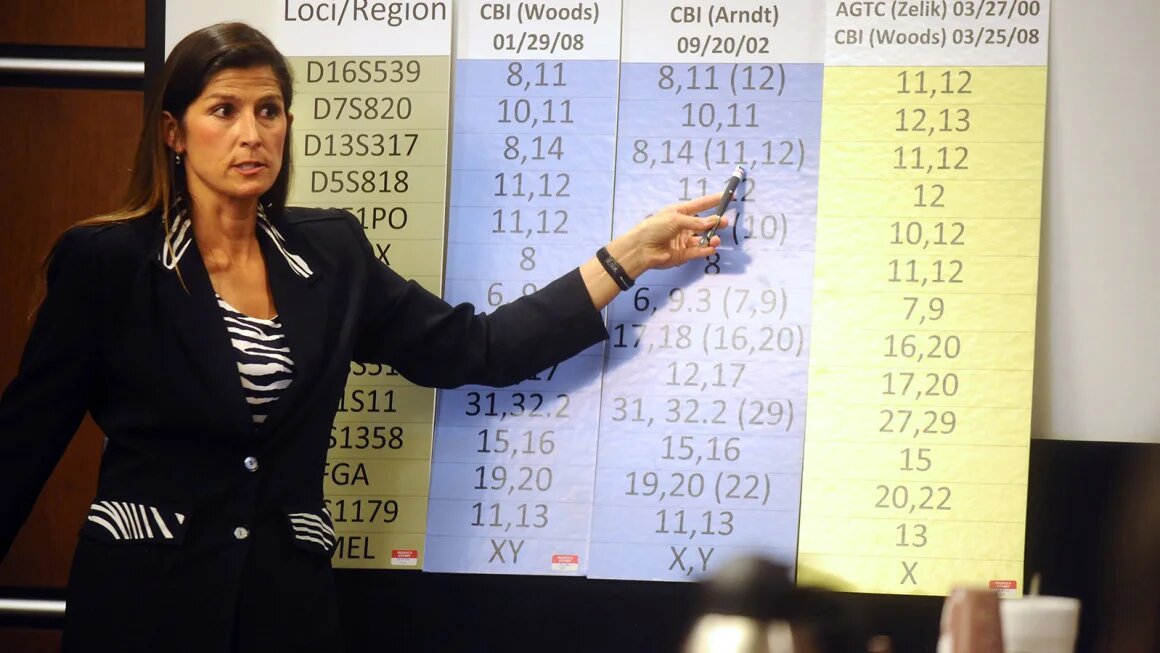The recent revelation surrounding the conduct of former forensic scientist Yvonne “Missy” Woods at the Colorado Bureau of Investigation (CBI) has sent shockwaves through the legal community. An extensive internal affairs investigation uncovered a troubling pattern of data manipulation and omission spanning nearly three decades, casting a shadow of doubt over the integrity of forensic evidence in hundreds of cases. Woods, a veteran of 29 years at the agency’s crime lab, was placed on administrative leave in October after suspicions arose regarding her DNA testing procedures. The investigation concluded that Woods’ actions affected a staggering 652 cases between 2008 and 2023, raising concerns about the accuracy and reliability of forensic analysis conducted during her tenure.

The findings of the investigation, released by the CBI, revealed alarming discrepancies in Woods’ handling of DNA testing data. These discrepancies included the manipulation and omission of test results, as well as the posting of incomplete findings in some cases. While the investigation did not uncover evidence of falsified DNA matches or fabricated data, it exposed serious breaches of protocol and violations of agency policies. Woods’ conduct, described by the CBI as intentional, compromised the integrity of forensic evidence and eroded public trust in the criminal justice system.
In response to these revelations, the CBI initiated a comprehensive review of all cases involving Woods to ensure the accuracy and reliability of forensic analysis conducted under her supervision. The agency also enlisted third-party investigative resources to safeguard the integrity of the inquiry and uphold the principles of transparency and accountability. Meanwhile, a separate criminal investigation into Woods’ conduct is ongoing, underscoring the gravity of the allegations and the need for swift and decisive action.
The ramifications of Woods’ misconduct extend far beyond individual cases, highlighting systemic issues that undermine the reliability and credibility of forensic science. From the lack of independence in forensic labs to the biases inherent in the legal system, these challenges underscore the urgent need for reform. In the following sections, we delve into the multifaceted nature of these issues and explore their far-reaching consequences.
1. Lack of Independence in Labs and Lab Culture:
Forensic laboratories are often intertwined with law enforcement agencies, raising concerns about potential biases and conflicts of interest. The close relationship between forensic analysts and prosecutors can create pressure to produce results that align with the narrative of the prosecution, rather than impartially seeking the truth. This inherent lack of independence compromises the integrity of forensic analysis and undermines public trust in the criminal justice system.
2. Lack of Videotaping Laboratory Processes:
The absence of comprehensive documentation and oversight mechanisms within forensic laboratories leaves ample room for malpractice and misconduct. Without clear records of laboratory procedures, it becomes difficult to detect instances of data manipulation or procedural errors. Implementing mandatory videotaping of laboratory processes would provide an essential layer of transparency and accountability, safeguarding against potential abuses.
3. Lack of Interest in Defense Attorneys Accessing Scientific Data:
Defense attorneys often face significant barriers when attempting to access scientific data and challenge forensic evidence presented by the prosecution. This asymmetry in access to information tilts the scales of justice in favor of the prosecution, depriving defendants of their right to a fair trial. Addressing this disparity requires greater transparency and cooperation from forensic laboratories, ensuring that defense attorneys have equal access to relevant scientific data.
4. Lack of Training for Defense Attorneys in Forensic Science:
Many defense attorneys lack the specialized training and expertise needed to effectively scrutinize forensic evidence and identify potential flaws or inconsistencies. This knowledge gap leaves defendants vulnerable to wrongful convictions based on faulty or unreliable forensic analysis. By providing comprehensive training programs on forensic science for defense attorneys, we can empower them to better advocate for their clients and uphold the principles of justice.
5. Antiquated Precedent Hindering Access to Scientific Data:
Outdated legal precedents and procedural hurdles often impede efforts to obtain critical scientific data for independent analysis. This creates a barrier to uncovering potential errors or misconduct in forensic testing, further eroding trust in the reliability of forensic evidence. Reforms aimed at modernizing legal procedures and prioritizing transparency are essential to address this systemic challenge.
6. General Scientific Ignorance Among Jurors:
Jurors play a pivotal role in the criminal justice process, yet many lack a basic understanding of scientific principles and methodologies. This scientific illiteracy can lead jurors to place unwarranted faith in forensic evidence without critically evaluating its reliability or validity. Education initiatives aimed at improving scientific literacy among jurors are essential to ensure fair and informed decision-making in the courtroom.
7. Judicial Inaction and High Case Loads:
Judges bear a responsibility to uphold the integrity of the legal system and ensure that forensic evidence is scrutinized rigorously. However, the pressures of high case loads and competing priorities may lead to judicial indifference or complacency. This can result in a failure to adequately address concerns raised about the reliability of forensic evidence, perpetuating miscarriages of justice.
8. Prosecutorial Bias and Misconduct:
Prosecutors wield considerable influence over forensic scientists and may exert pressure to obtain results that support their case. This prosecutorial bias can lead to the manipulation or distortion of forensic evidence, undermining its credibility and reliability. Prosecutors must be held accountable for any attempts to unduly influence forensic analysis and jeopardize the integrity of the criminal justice system.
In conclusion, the case of Yvonne “Missy” Woods at the Colorado Bureau of Investigation serves as a stark reminder of the systemic issues that undermine the integrity of forensic science. From the lack of independence in labs to the biases inherent in the legal system, these challenges must be addressed comprehensively to restore public trust and ensure justice for all. It is imperative that we confront these issues head-on and implement reforms that prioritize transparency, accountability, and the pursuit of truth in forensic analysis. Failure to do so risks further erosion of confidence in our criminal justice system and perpetuates the cycle of injustice.


